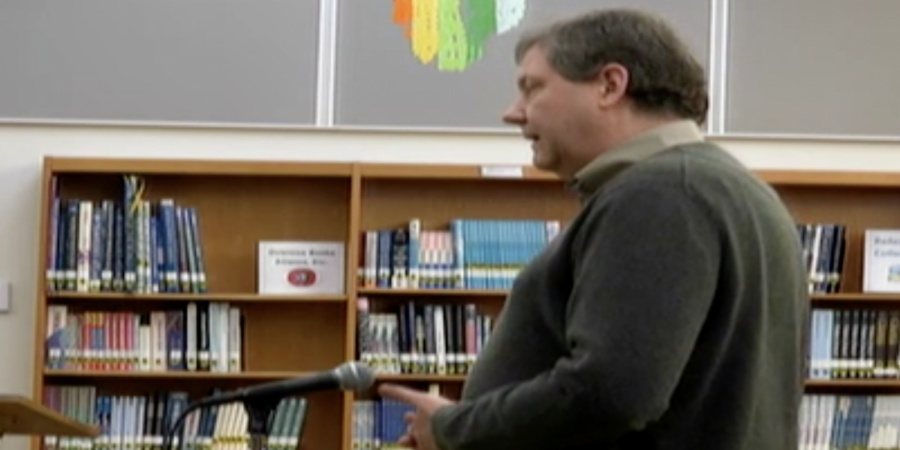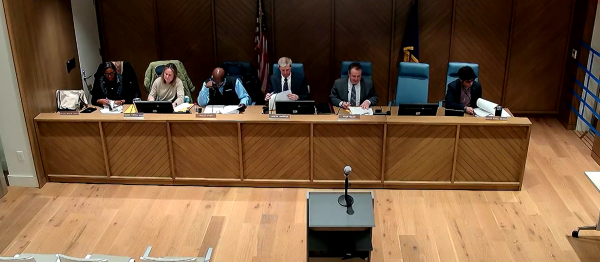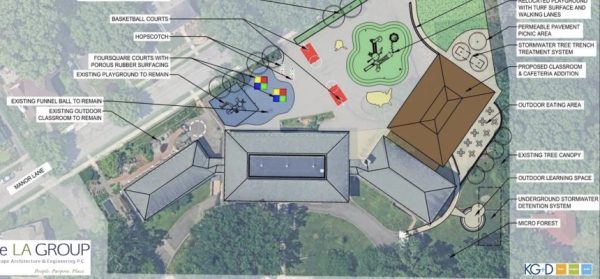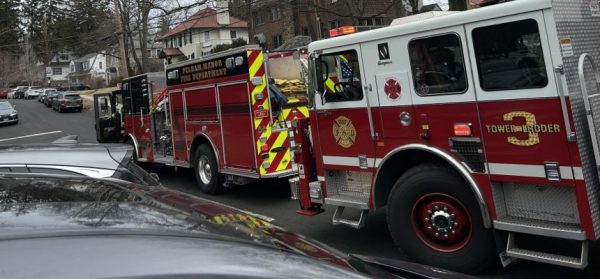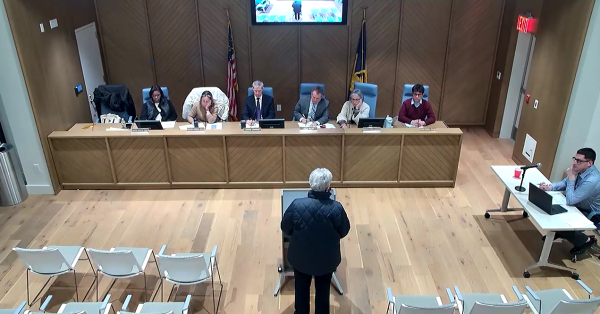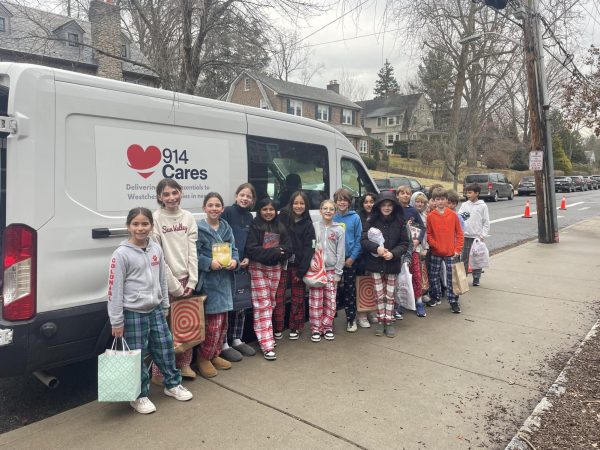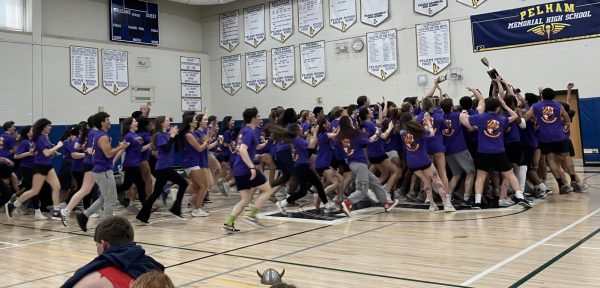School board DID answer residents’ questions publicly in 2018-2019
Pelham school board members and administrators answered residents’ questions during public meetings in 2018 and through part of 2019, based on a review of meeting videos by the Pelham Examiner. The board stopped providing public answers sometime in 2019, though exactly when and why is not clear from the board’s published video agendas—which sometimes don’t list the public comment period—and because district officials have declined to comment on those questions.
The board’s current policy is to open its meetings for a period of public comment, when the board listens without responding. Residents with questions are contacted privately.
The board must vote to change its policies.
The question-and-answer issue was put into sharp focus during the school board campaign by Trustee-elect Ian Rowe, who called the approach “a gag rule” in a letter to the editor and further criticized it during the forum for school board candidates. Rowe will be taking office in July for a three-year term and has said he will work with his new board colleagues “to show how there is a better way to engage with our Pelham residents who want a board to be more responsive and publicly accountable.”
“As parents and taxpayers, our board owes us transparency and the ability to be heard in public and the ability to be responded to in public,” Rowe said. “Moreover, following a bare minimum legal standard is insulting to Pelham residents who take the time to come to a meeting to publicly express a genuine concern, and only receive in return a stone-faced gaze from the board.”
In a survey by the Examiner, three area school districts said they answer questions from the public during board meetings, while three do not.
Pelham Board President Jessica DeDomenico declined to give an interview on the current policy, on when the board publicly discussed putting it in place and why, saying she “will be addressing public comment procedures” at the June 16 board meeting, noting the delay was due to the tenure and retirement celebrations at recent board meetings.
Resident (first name Ted, last name garbled) of 1007 Esplanade: But also observation is by some of the kids that recent renovations at some of the bathrooms, we’re equipping the bathrooms for some amount of recording capability… One question would be where inside school video recording is going to take place? Is there a retention policy of the district of those videos because, of course, they would be subject to subpoena, and other legally valid law enforcements policies? The other is, and maybe this is more of a individual school question, but the high school tightened up some of its policies around e-cigarette use, and I’m wondering if what the policy becomes now for students who are in the presence of other students who are found to have e-cigarette materials on them. So just a bit of a technology question and a school policy question.
Superintendent Dr. Cheryl Champ: I can address a little bit of that. To be clear, we’re not putting cameras in bathrooms. I think you made a comment to that effect. That is inaccurate. Yeah, whatever information or word was coming your way, yeah, no we will not be doing that. At this point, we really have very very few internal cameras, so the focus has been on exterior at this point in time.
(There then followed a discussion among board members and administrators of exterior cameras, video memory, vaping sensors, district e-cigarette policy and the resources available from Pelham Together, all topics likely of interest to at least some others at the meeting or watching the video feed, given the attention vaping was getting at the time.)
At the April 9, 2019 meeting, a different resident received responses to queries on debt service figures, as well as the impact of state aid on taxes and the timing of the introduction of Chromebooks to middle school students.
A year after the Esplanade resident received his answers on vaping and cameras, the change in policy seems to emerge in this introduction to the public comment period on Dec. 18, 2019 (at the meeting there were several people present to comment on the renaming of Glover Field):
Board President Jessica DeDomenico: So I’d like to invite anybody who’d like to speak up to the microphone. If you wouldn’t mind stating your name and address. And because I anticipate there might be a lot of people who want to speak, just try and keep your comments somewhat brief.
Champ: And if I could just add one reminder, we really thank everyone for coming out. This portion is a public comment not a discussion period, so as Jessica said, folks are welcome to share their name and address and share their comments and feedback with the board. I just don’t want folks to be frustrated if you don’t get a response because it’s not meant to be a back and forth discussion.
Further on April 1, DeDomenico mentioned the changed policy when reading emails from residents: “I will be forwarding these to our administrative team. Just we don’t do a Q&A when we do public comment.”
In all, three residents sent in email questions to that meeting held on Zoom as the Covid-19 pandemic was beginning. Whatever answers the administration provided to the correspondents via email, no other viewers would have received that information.
In early March, Alex Wolff, the district’s public information officer, said, “The board’s policy refers to ‘Robert’s Rules of Order’ to govern parliamentary procedure, which according to legal counsel doesn’t provide for a Q&A at board meetings.”
The district’s counsel, Stephanie Roebuck of Keane & Beane, said that school boards “can set limitations on public participation as long as it’s in their board policy and as long as it is a process that is administered fairly and no one is treated any differently with regards to their public participation.”
The Scarsdale, Ardsley and Eastchester school boards reply to public comments in real time at meetings, while Katonah-Lewisboro, Byram Hills and Hendrick Hudson all answer privately.
“When possible, answers or clarity are provided during each follow-up to public comment, immediately following the comment period,” said Pam Fuehrer, president of the Scarsdale Board of Education.
Ardsley Board of Education President Matthew Bonney said their process has changed with Covid-19. “Before Covid, citizens could come to a meeting, depending on the topic there were two parts of the board meeting they could ask a question and get an answer,” he said. “In Covid times, citizens can email questions. We read all the emails and answer them.”
A member of the Eastchester Board of Education stated that the board “generally answers questions directly at meetings if they involve clarification of agenda items or information that can be answered readily by board members or the superintendent,” with certain questions answered after the meeting, either privately or at a later date.
Marjorie Schiff, president of the Katonah-Lewisboro Board of Education, said, “As public forum is reserved for public commentary, board members do not engage in any direct response to community members during this portion of the meeting.”
Ira Schulman, president of the Byram Hills Board of Education, said his board typically “does not engage in Q&A with the public at board meetings. If a reply is necessary, it will follow via email or by phone, usually from the superintendent.”
Carol Abraham, president of the Hendrick Hudson Board of Education, said, “If there are questions, they are referred to the appropriate administrator for follow up.”
Cristina is a senior at Pelham Memorial High School. She is the class of 2023 secretary and the Editor-in-Chief of the PMHS Pelican Yearbook. Cristina...



